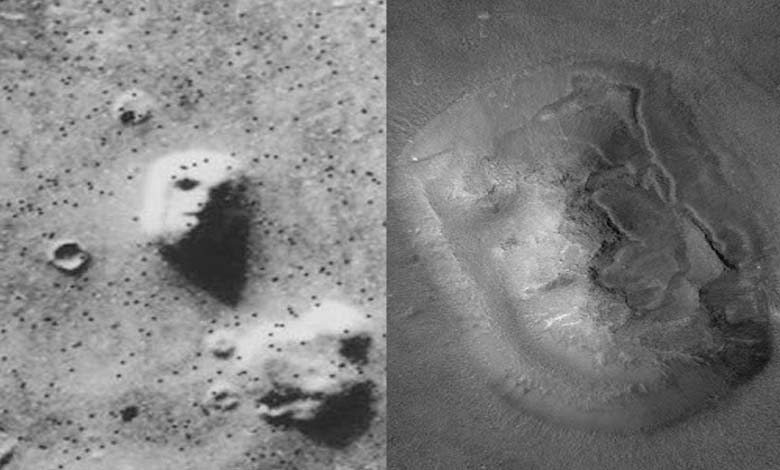Something resembling a human face on Mars… What does it mean?

The website “Science Alert” reported that an image taken by the Perseverance rover in September this year, while performing its duties, is one of the most striking images so far. It appears to resemble a dried, decayed human head, detached from any body, wilting under the harsh sunlight, raising new questions about the nature of this object.
-
The Middle East on the Edge… Has the Countdown to a Broader War Begun?
-
The Cosmic “Hot Dog” Dashes Hopes of Finding Extraterrestrial Civilizations
According to the site, it seems to be a new case of the phenomenon of pareidolia on Mars, where the human mind perceives familiar shapes in random patterns, making the object appear as something else.
Aside from the monstrous head, the shape seems to be a piece of sedimentary sandstone, not unlike the surrounding rocks. This is not unusual for Mars, a planet once thought to have had flowing water.
The site adds that the shape of the rock is what makes it exceptional. The way it has eroded, and its orientation towards the camera, make it look like a head lying on its side, showing similarities to features like an eyebrow ridge, nose, mouth, and chin.
-
New Surprise from “SpaceX”: 5 Vehicles to Mars
-
For the First Time, Scientists Discover Water Frost on Mars’ Volcanoes
Pareidolia is surprisingly common in images from Mars. Scientists have so far identified rocks shaped like a bear’s face, a mushroom, a carved warrior, a very small Bigfoot, a spoon, a femur, and even insects.
This phenomenon is thought to occur when your eyes see an arrangement of shadows, objects, or shapes, and parts of your brain responsible for visual processing jump to conclusions before the rest of the gray matter catches up. This certainly happens here on Earth as well, according to the site.
-
Revealing the Origin of Two Billion Craters on the Planet Mars
-
Malfunction Ends “Mars Helicopter” Mission
Additionally, the fusiform gyrus in the brain contains a specific bump of tissue dedicated to rapid face recognition.
So far, the site has noted that there is no evidence of complex life on the red planet or visits to it, but humanity hopes to change that with future plans for manned missions to Mars.












